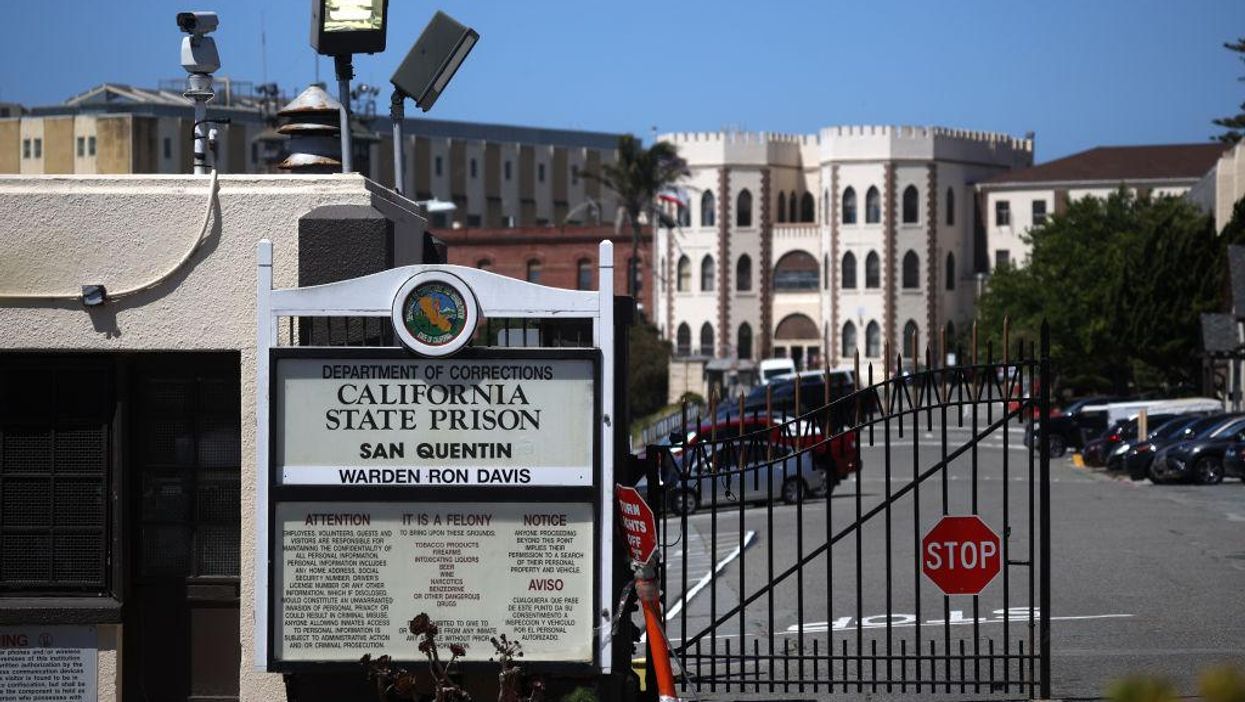
Justin Sullivan/Getty Images

California is preparing to issue early release credits for approximately 76,000 inmates, including tens of thousands who were convicted of violent crimes.
"More than 63,000 inmates convicted of violent crimes will be eligible for good behavior credits that shorten their sentences by one-third instead of the one-fifth that had been in place since 2017," the Associated Press reported. "That includes nearly 20,000 inmates who are serving life sentences with the possibility of parole."
In an effort to reduce the state's massive prison population, over 10,000 inmates who were convicted of a second serious, but nonviolent, offense under the state's "three strikes" law will be eligible for release after serving half of their sentences.
"All minimum security inmates in work camps, including those in firefighting camps, will be eligible for the same month of earlier release for every month they spend in the camp, regardless of the severity of their crime," the report stated.
The new prison policies go into effect on Saturday, "but it will be months or years before any inmates go free earlier," KCRA-TV reported, and added, "Corrections officials say the goal is to reward inmates who better themselves while critics said the move will endanger the public."
The changes were approved this week by the state Office of Administrative Law with little notice to the public because the new rules were labeled as "emergency regulations." In order for the changes to be permanent, they will need to be submitted next year and allow for a public hearing and comment.
Republican state Sen. Jim Nielsen, who previously was the head of the state parole board, slammed Gov. Gavin Newsom's administration for instituting the new policy without consulting the public.
"He's doing it on his own authority, instead of the will of the people through their elected representatives or directly through their own votes," Nielsen said of the Democratic governor. "This is what I call Newsom's time off for bad behavior. He's putting us all at greater risk and there seems to be no end to the degree to which he wants to do that."
"The goal is to increase incentives for the incarcerated population to practice good behavior and follow the rules while serving their time, and participate in rehabilitative and educational programs, which will lead to safer prisons," Dana Simas, the press secretary at the California Department of Corrections and Rehabilitation, told the AP. "Additionally, these changes would help to reduce the prison population by allowing incarcerated persons to earn their way home sooner."
Kent Scheidegger, legal director of the Criminal Justice Legal Foundation, has a different view of the early release credits.
"You don't have to be good to get good time credits. People who lose good time credits for misconduct get them back, they don't stay gone," Scheidegger told the AP. "They could be a useful device for managing the population if they had more teeth in them. But they don't. They're in reality just a giveaway."
Last July, California announced that it would release as many as 8,000 inmates over the summer. State authorities said the release of prisoners was being done to slow the spread of COVID-19. Last spring, California released about 10,000 inmates over coronavirus fears.